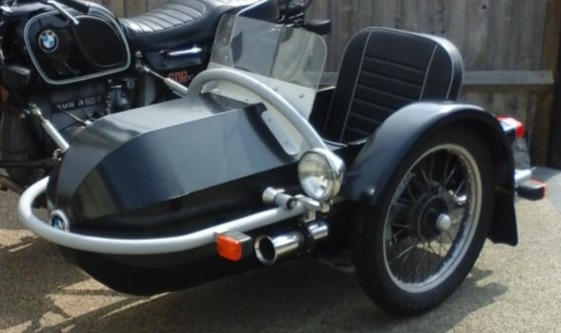
Finishing the sidecar
This page describes some the finishing touches added to the sidecar including construction of the seat and a luggage rack for the boot, as well as some accessories.

This page describes some the finishing touches added to the sidecar including construction of the seat and a luggage rack for the boot, as well as some accessories.
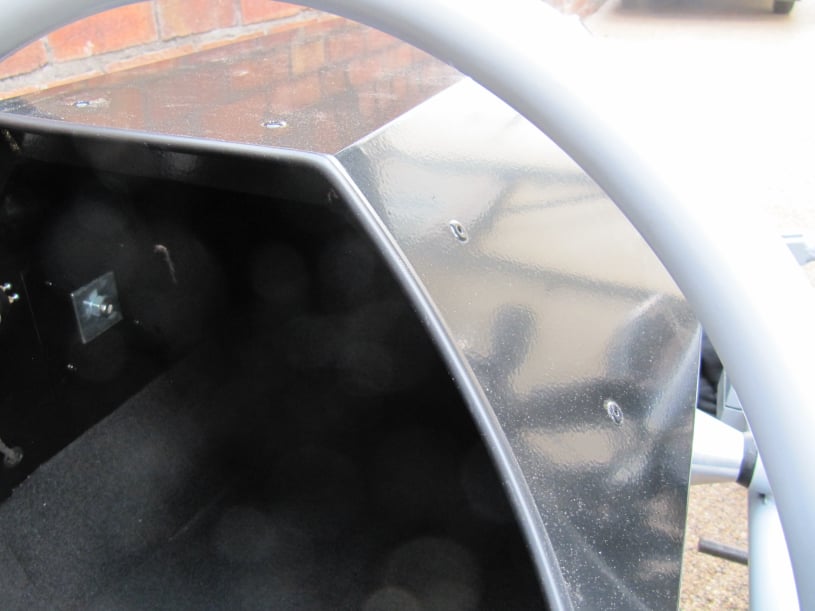
The front and rear edges of the passenger area were finished with a self adhesive trim strip to create a safe edge.
This satin black plastic U-channel came with some impact adhesive already inside to hold its position and was purchased from Car Builder Solutions.
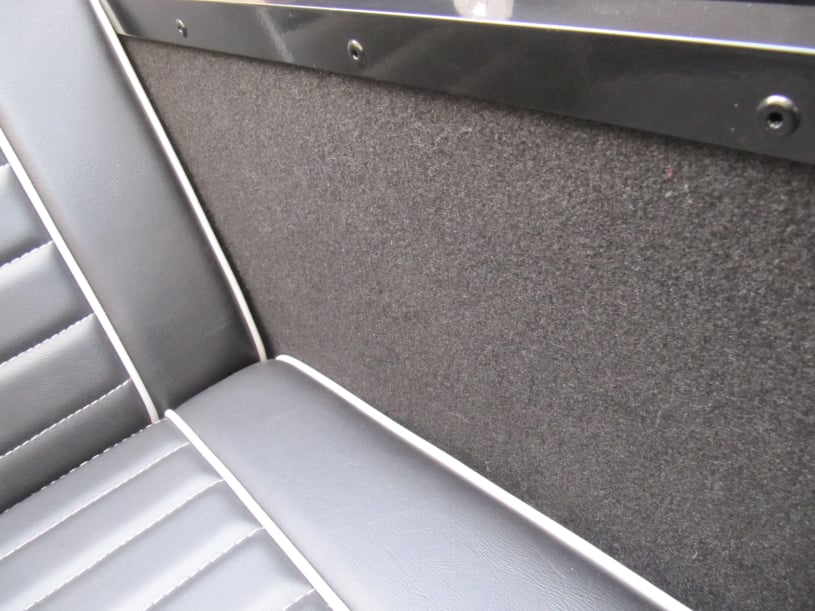
The floor, sides and boot of the cabin were covered with some automotive carpet, also from Car Builder Solutions.
This was cut and stuck in place with contact adhesive.
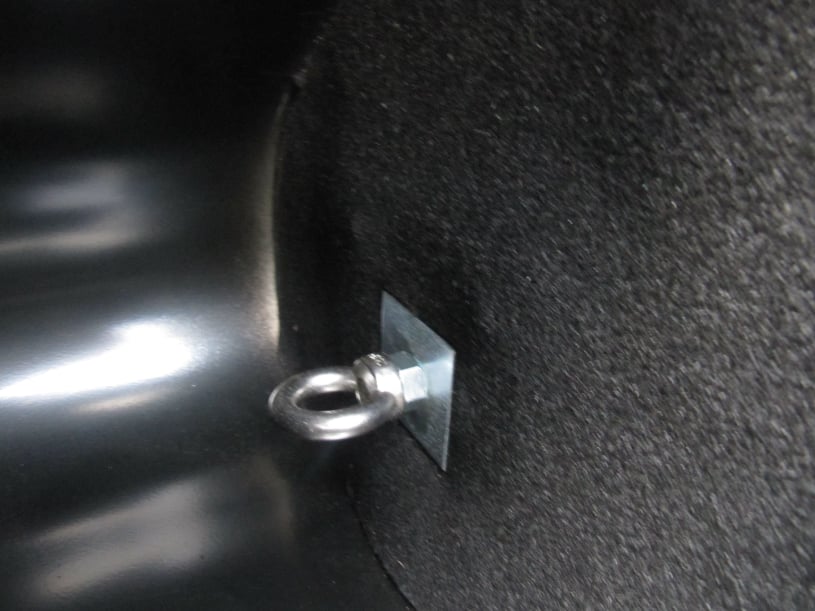
12mm stainless steel eye nuts were used for seat belt anchor points.
These were screwed onto the end of the back frame mounting bolts on the inside of the boot area.
The chosen seat belt was a lap belt from a surplus aircraft supplier.
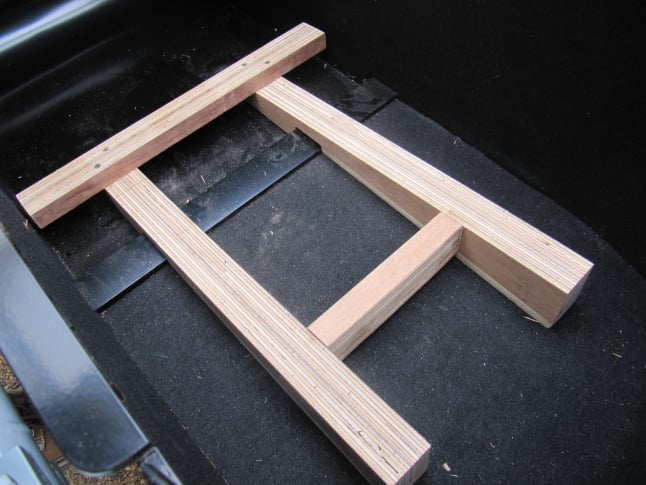
The seat was a simple plywood bench professionally upholstered. The base frame was removable to carry large cargo and it located on the cross beams of the sidecar.
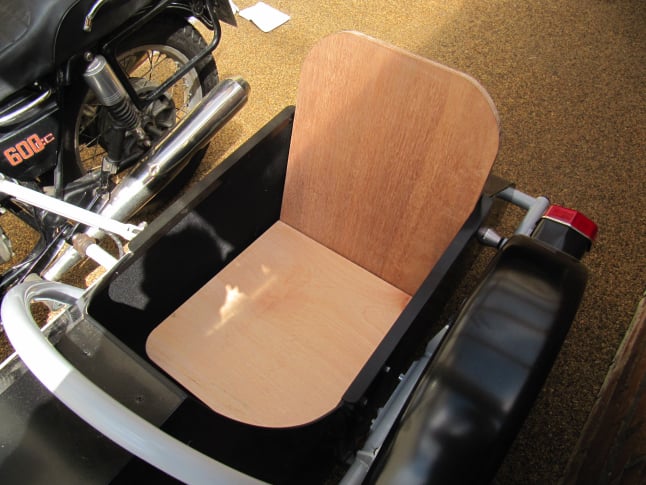
The back cushion of the seat was designed to fold down so that a tonneau cover could be fitted when no passenger was in the sidecar.
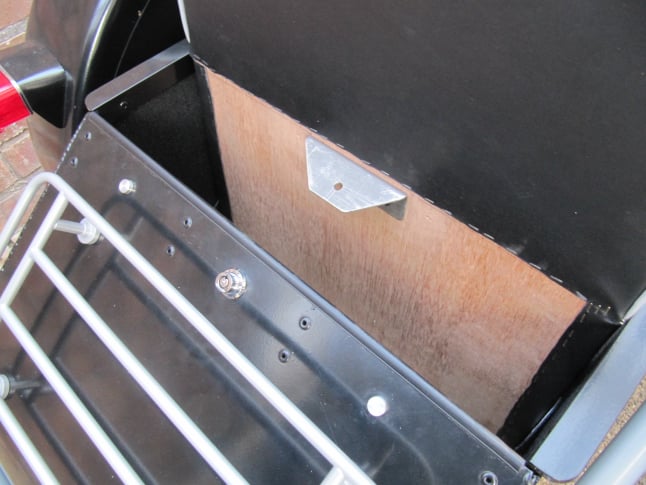
To keep the seat back in place and to provide some secure storage a push lock was added to the boot section of the sidecar which would lock into a plate in the seat back.
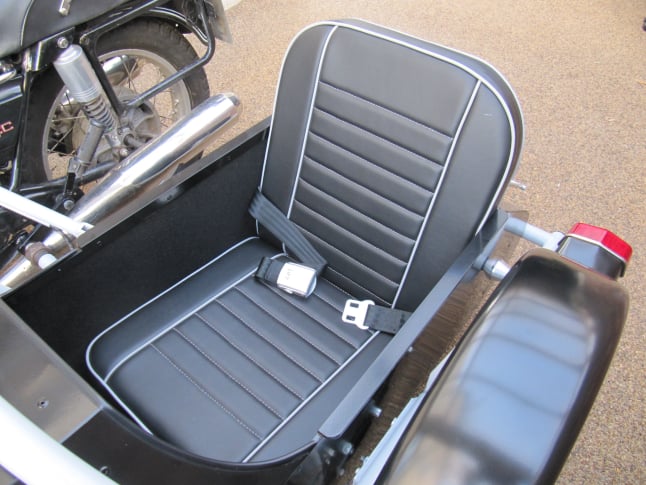
The seat was professionally covered with grey piping in the seams to compliment the frame and horizontal stitches to match the motorcycle seat.
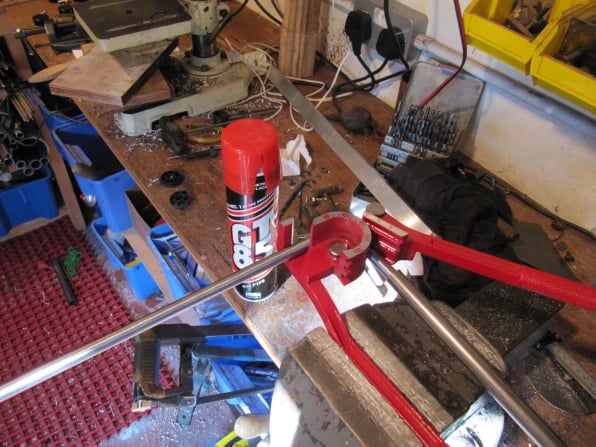
A luggage rack was made for the back panel of the sidecar.
The rack was made from 10mm steel tube.
The outer frame was bent on a small plumber's bender. Some lubricant helped pull the tube round the former.
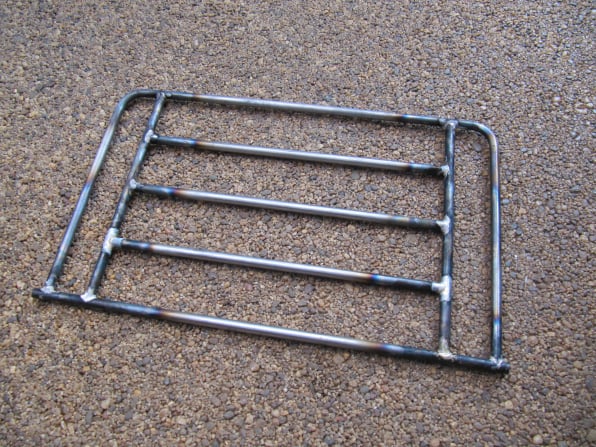
The frame deck was brazed together
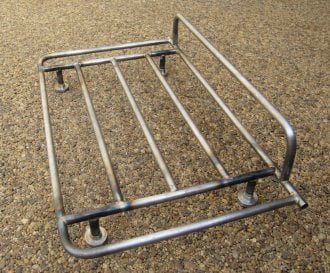
An side rail was added and four matching stand-offs made from steel bar with an M6 hole tapped in the foot.
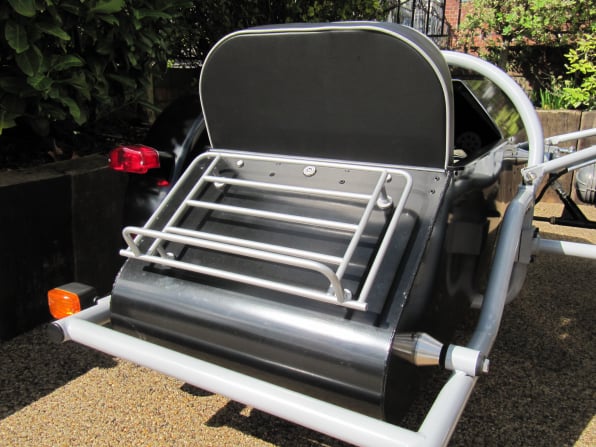
The rack was powder coated in silver grey before final fitting.
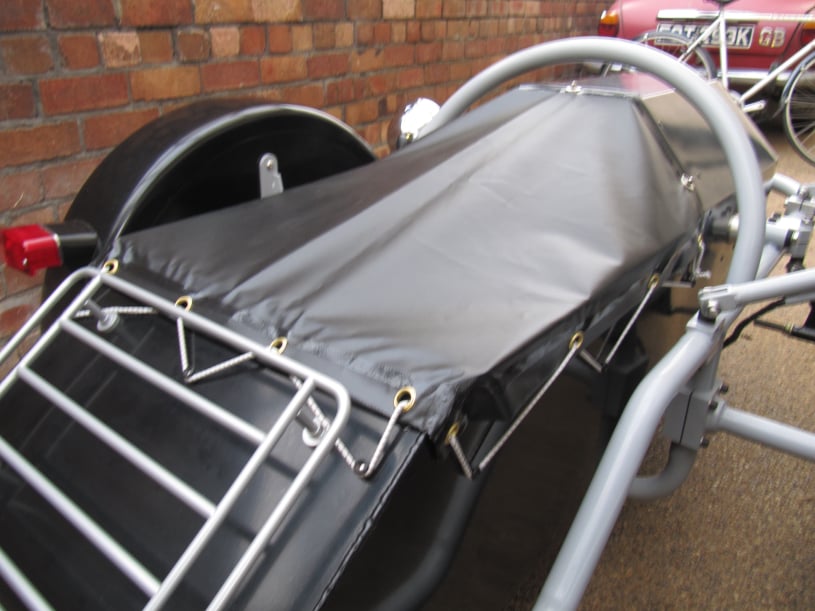
As a follow on project, a cover was designed for the sidecar cabin.
The final design was a PVC cover derived from a trailer cover with a laced bungee cord around the sides and back.
The front edge was secured with quarter turn buckles to locate the cover and prevent it from lifting at speed.
The cover was only designed to fit with the seat folded flat.
The conversion process is shown below.
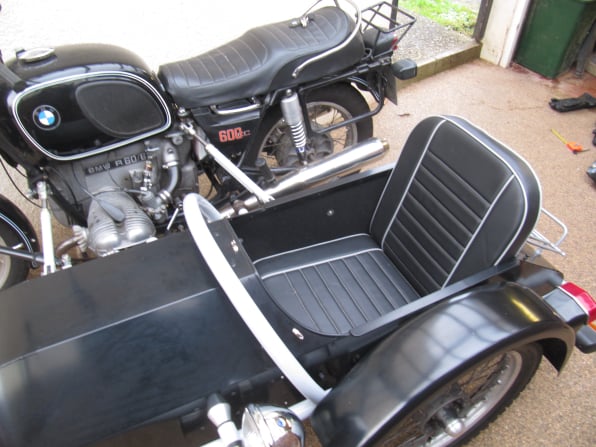
Sidecar seat.
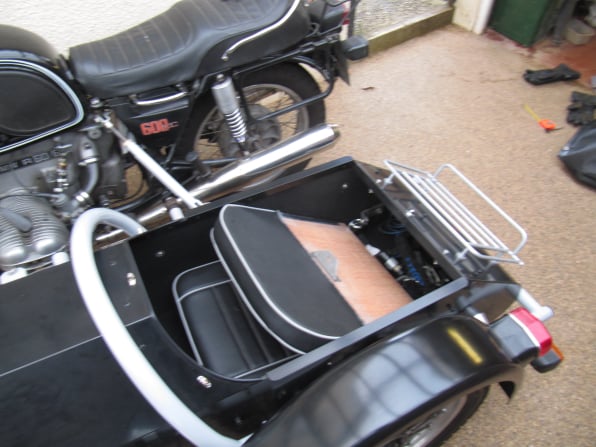
Folded forwards
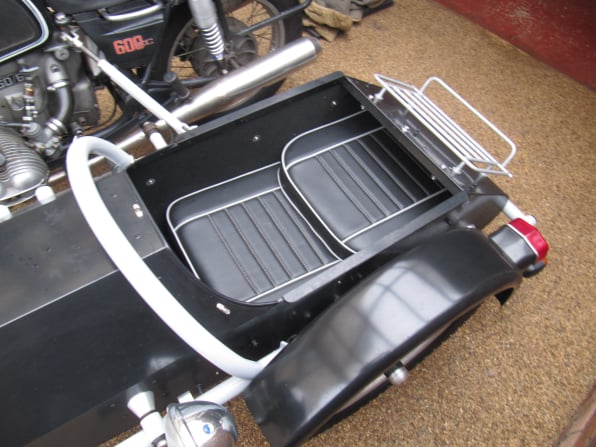
Backrest stowed
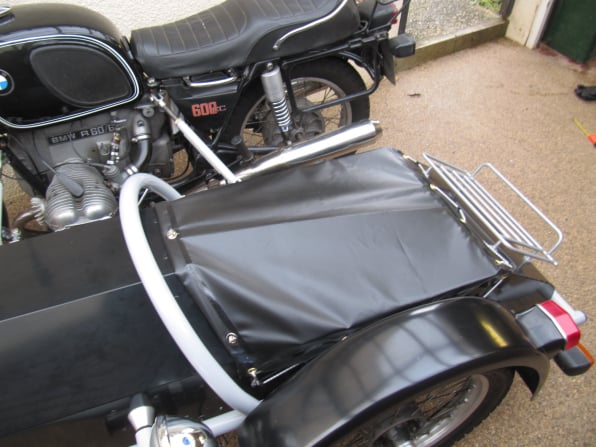
Tonneau fotted
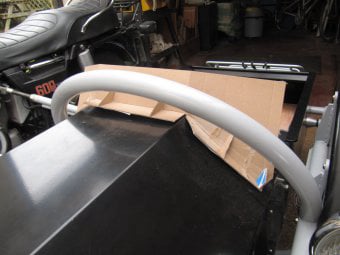
An aero-style screen was added to the sidecar.
It would be attached to the sidecar bodywork using a baffle plate made from aluminium. A cardboard template was made first to get the angle correct.
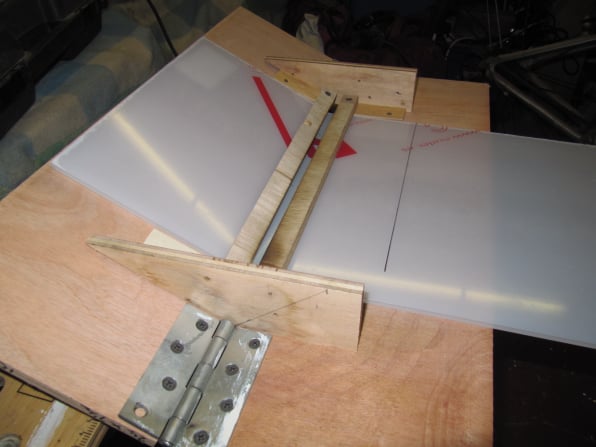
The screen was to be a three sided design made out of 6mm polycarbonate.
The polycarbonate was folded with a hot air gun and a simple wooden jig to get a neat fold.
The cut sides were smoothed with fine grade wet-n-dry paper.
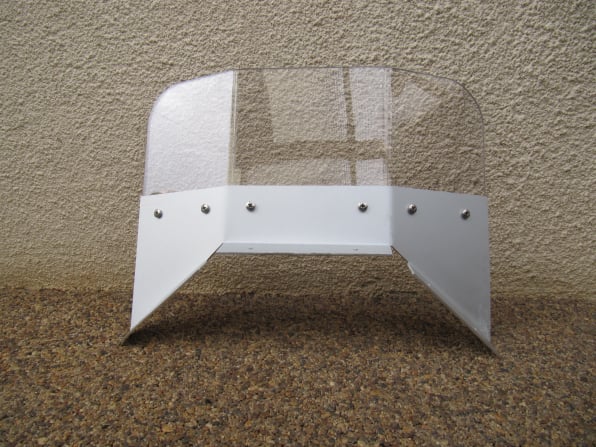
Completed screen screwed to the baffle plate with stainless domed fittings.
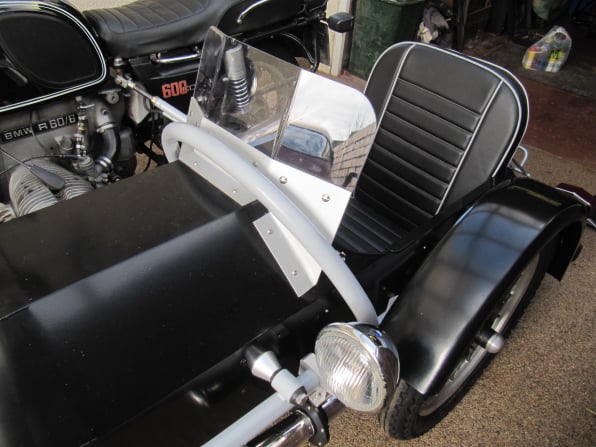
Fitted screen
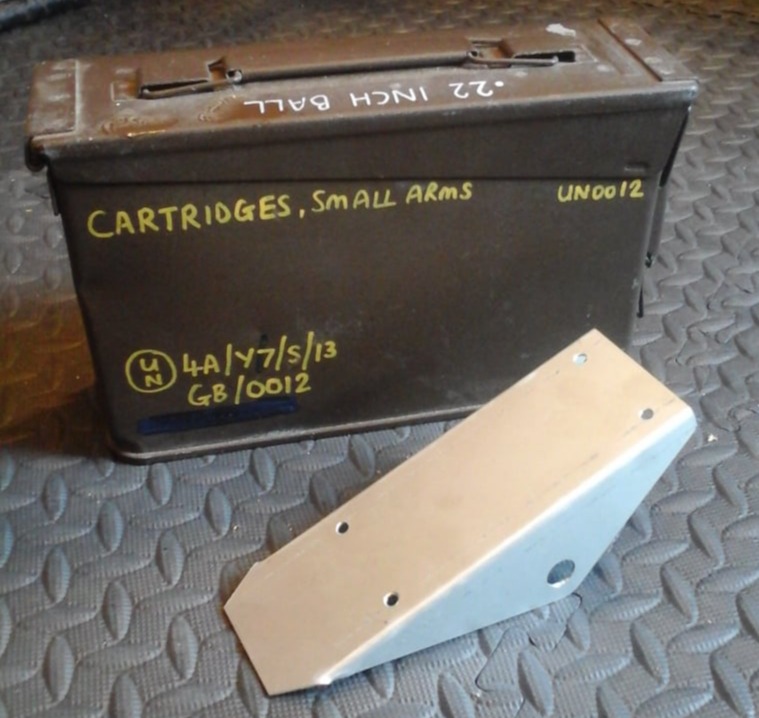
An ammo tool box was added uning a bracket designed to share one of the bodywork mountings.
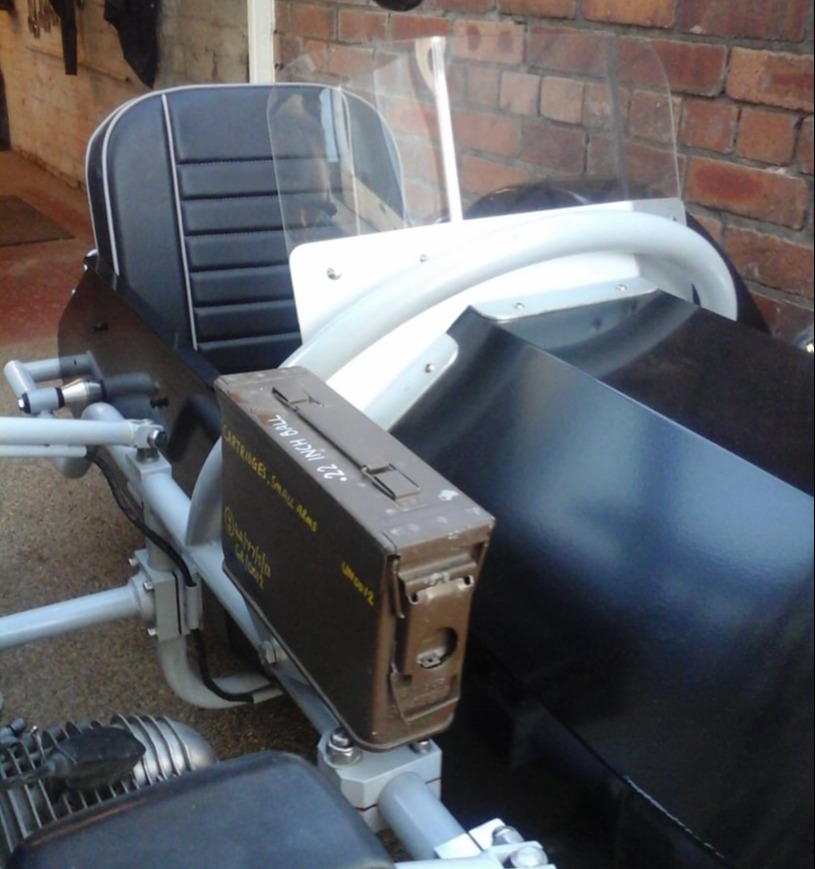
The box had a foam base fitted inside to prevent rattling.
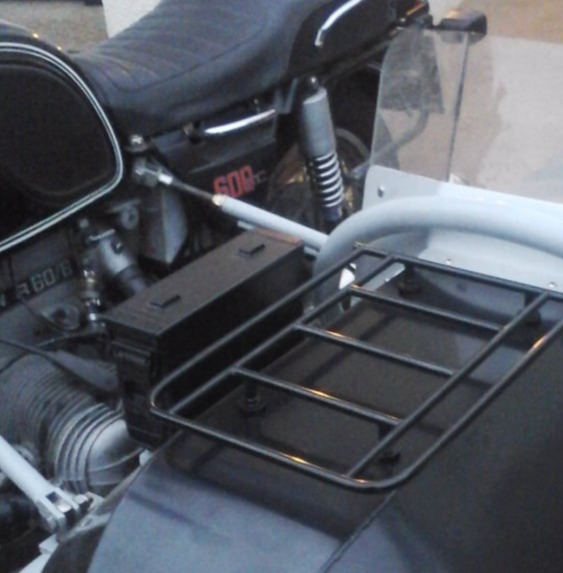
It was painted black to finish.
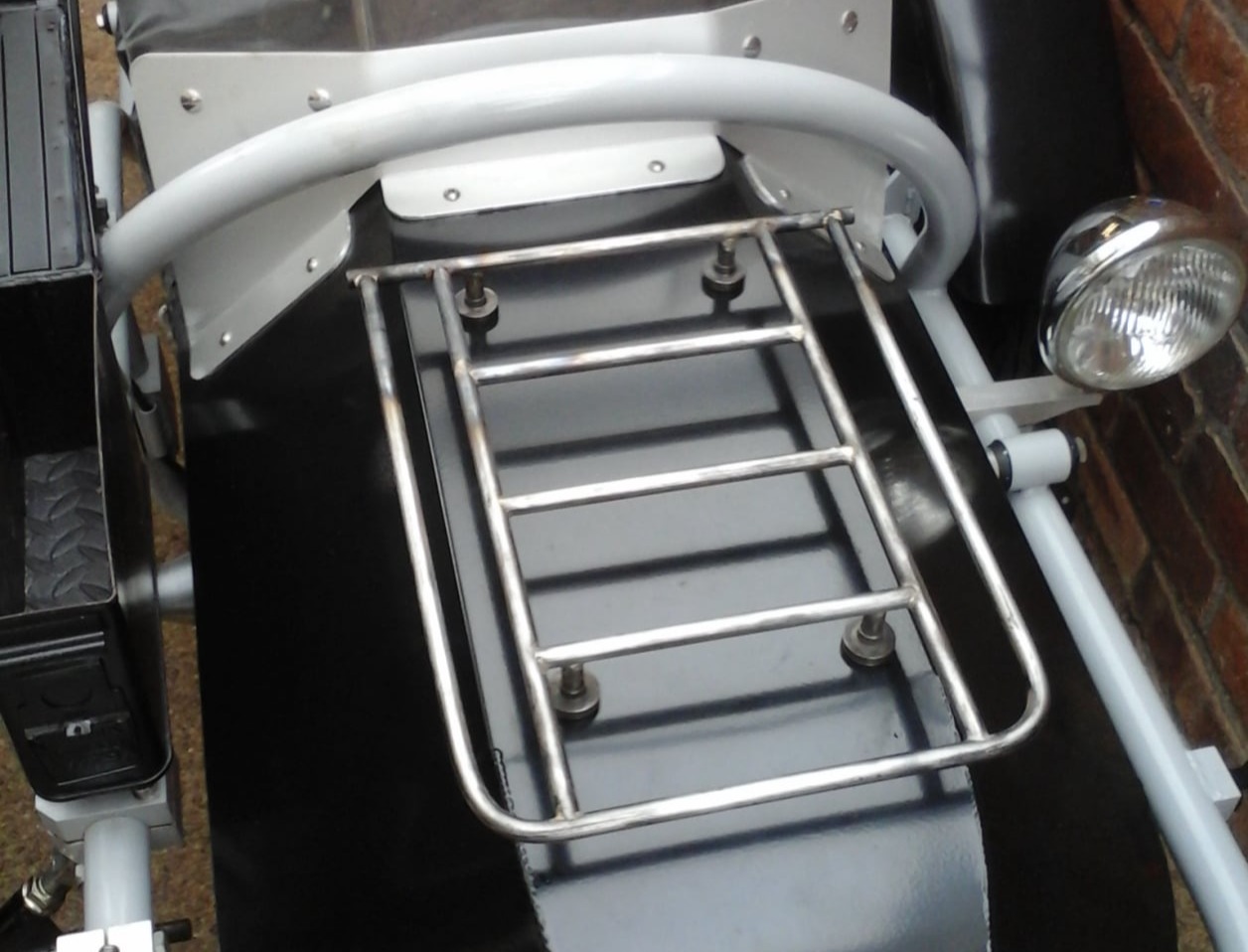
A front rack was made up to match the rear design.
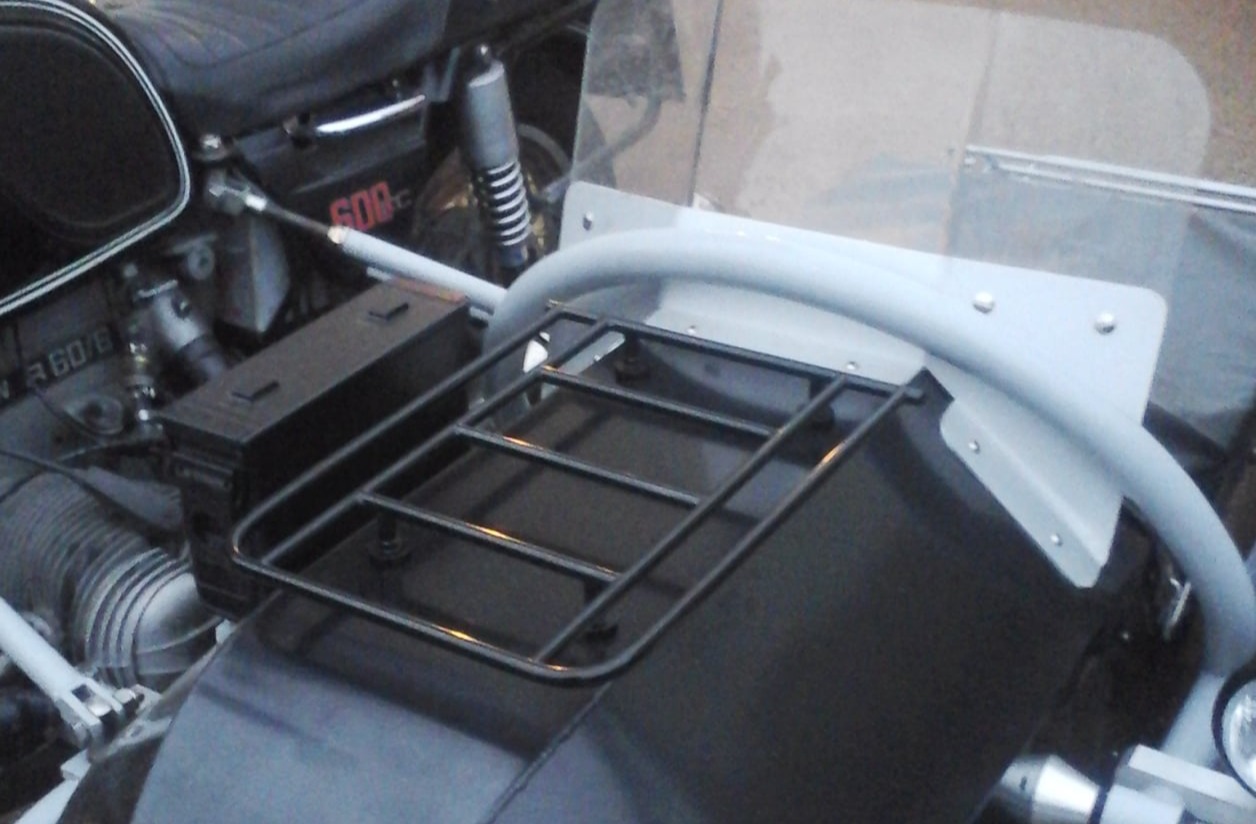
Powder coated in black
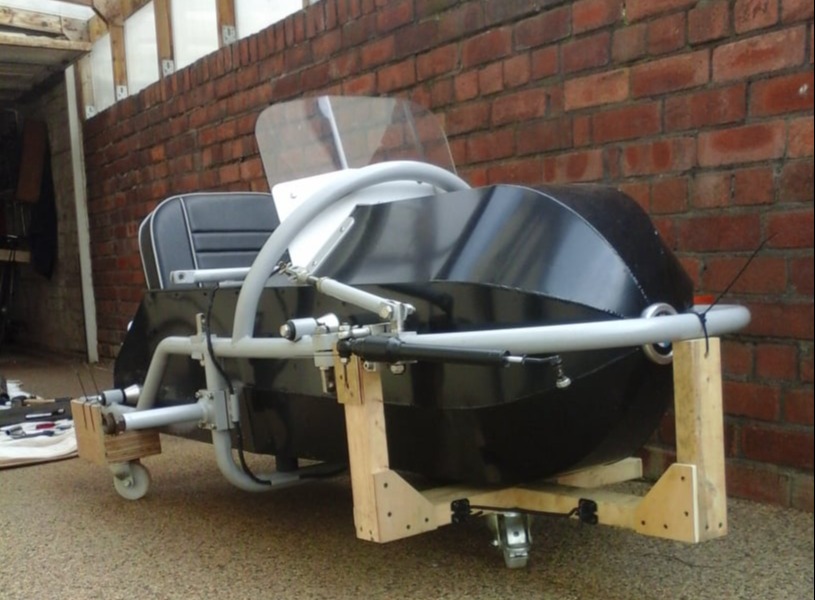
A dolly was made up from heavy duty casters to help move the sidecar around when not attached to the bike.
The dolly was secured to the sidecar frame with cable ties.
HTML Code Creator